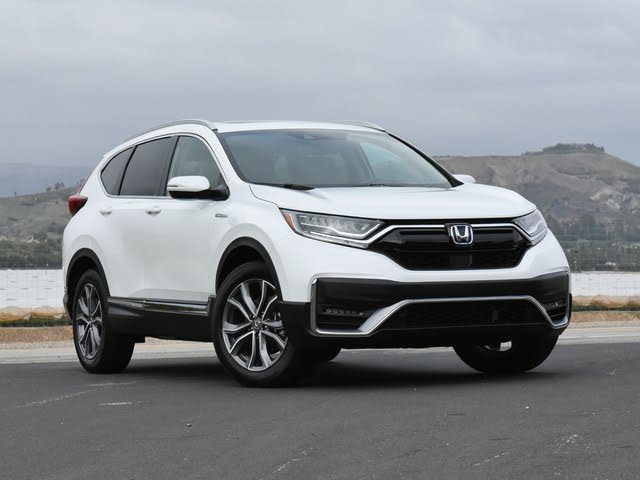Between pre-purchase inspections and price negotiations, there’s a lot to think about when buying a car. One way manufacturers and dealerships try to help ease buyers’ concerns is by certifying their used vehicles. Known as certified pre-owned (CPO), these vehicles have been inspected and verified by dealers to meet very specific criteria. With manufacturer (or “factory”) CPO cars, the certification process is done by a franchise dealer specializing in one particular brand of vehicle. Independent car lots also offer their brand of certification, complete with an extended warranty.
However, not all CPO programs are created equal. A dealership CPO vehicle might seem like a great deal and cost thousands less than one that has been factory certified at a franchise lot, but there are key differences to be aware of when shopping.
Look for Factory CPO Cars

The best way to find a factory CPO vehicle is to shop at a brand name franchise dealership. You’ll be able to tell these lots from independent dealers by looking at their names. Franchise dealerships pay to use the brand name of the vehicle manufacturer on their lots, so you’ll see something like “Smith Ford” or “Boston Honda.” You may also see a factory-certified vehicle being sold at a franchise dealer’s subsidiary, like a wholesale or used-car center.
Be aware that many franchise dealerships are owned by large groups that may control several other brand-name lots. These companies are sometimes able to offer their own in-house CPO vehicles that compete with the factory’s certification, so you’ll need to ask the salesperson to be sure about what you’re getting. Additionally, pre-owned “superstores” like CarMax also offer similar extended warranties or certification programs that are not factory approved.
Vehicles that have been certified by independent dealerships and used-vehicle stores like CarMax usually limit shoppers from servicing their certified vehicles at shops other than where the purchase took place. It’s important to be aware of that fact when you’re offered extra-cost extended warranties at the bargaining table.
Different Programs Have Different Standards

Automakers like Toyota and Ford won’t slap CPO stickers on every used car. The vehicle must meet specific criteria in order to be certified, and that’s before any “normal” maintenance problems are resolved. You’ve probably heard commercials that throw out big claims like “100-point inspections.” Those “points” refer to a checklist the factory gives its franchise service shops of everything that needs to be verified before a vehicle can be given a CPO title, from checking the fluids to testing the battery. Brands like Nissan, for instance, have requirements that include:
• Clean title: The vehicle can’t have suffered a major collision, flood, or other significant damage. • Mileage limits: Less than 80,000 miles on the clock. • Vehicle age limit: Less than 6 years old. • Recall history: All open recalls must be addressed. • Vehicle-condition inspection: A 158-point inspection plus additional items like interior smell. • A minimum of two keys offered with the sale.
That process sounds like it includes a lot, and it does. But a factory CPO vehicle offers a buyer quite a few benefits. The biggest upside is that a factory-blessed CPO vehicle will carry a warranty honored at any service center franchised by the car’s automaker. That means that if you buy a CPO Honda Accord in Phoenix, AZ, and it breaks down on a road trip in Minneapolis, MN, you’ll be covered by the Honda dealer there.
Factory CPO warranties are usually transferrable as well, meaning the warranty follows the car, not the owner. When one person sells the vehicle to another person, all the new owner has to do is notify the manufacturer.
Another potential benefit comes in the form of all the “goodies” dealers offer when a customer brings a CPO vehicle to the shop for service. This could be anything from a home pickup-and-delivery service to a free shuttle ride or a complimentary loaner car. Every brand and dealer are different, so it’s important to know what you’re entitled to receive.
Read the Fine Print

Your CPO may come with an extended warranty and dealership perks, so what could go wrong? Regardless of whether you’re buying a factory CPO car or one backed by the dealership, you’ll still need to be cautiously optimistic. As with any pre-owned purchase, you should plan on getting the vehicle inspected by an independent shop that you trust before you purchase it, regardless of how extensively it has been inspected by the dealer. Just because something passes muster at the dealer’s shop doesn’t mean there’s a guarantee that it has zero potential issues waiting to happen.
With factory CPO cars, you should also ask questions about what CPO means for that particular vehicle brand. Automaker CPO programs may all sound similar, but there’s fine print below every great deal. Learn about what is and isn’t covered under the CPO warranty, and make sure you’re comfortable with anything that you’ll be on the hook to cover yourself.
The Bottom Line
The biggest thing to remember is that you’ll need to be prepared to ask questions and learn about what you’re buying. The main difference between dealership CPO cars and factory CPO vehicles is that one offers the confidence of the vehicle manufacturer’s backing and the other does not. There may be circumstances where a vehicle certified by a dealership is a better deal for you, but most buyers will enjoy much more peace of mind and get more value from a factory CPO vehicle. No matter where you shop and what you buy, be careful to understand what is covered and for how long. Knowing the terms can mean the difference between years of worry-free driving and financial pain down the road.



